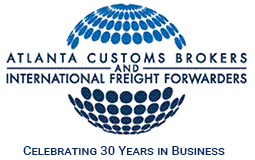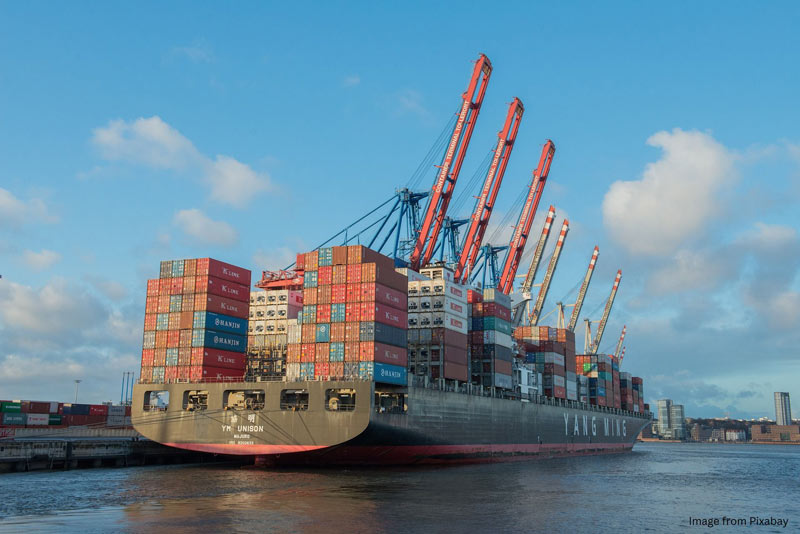The Essential Guide to Customs Brokerage and Freight Forwarding Services
Venturing into the world of international trade can be a daunting task, especially when it comes to navigating the complex processes of customs brokerage and freight forwarding. From intricate regulations to a maze of paperwork, it’s easy to get lost in the sea of logistics. This comprehensive guide is here to shed light on these crucial services, providing you with a sense of relief and transforming you into a knowledgeable person in the global market.
We are bringing you the essential tips and tricks in the world of customs brokerage and freight forwarding. With our insightful guide, you’ll learn the ins and outs of trade compliance, understand the role of customs brokers and freight forwarders in the supply chain, and master the nuances of international shipping, empowering you to navigate the global market with confidence.
Get ready to elevate your business to new heights as we demystify the world of customs brokerage and freight forwarding.
Understanding Customs Brokerage and Freight Forwarding Services
Customs brokerage and freight forwarding services are fundamental components of international trade and shipping operations. Customs brokers act as intermediaries between importers and government customs authorities, facilitating compliance with regulations and ensuring the smooth clearance of goods across borders. These professionals possess in-depth knowledge of tariffs, valuation, and documentation requirements, helping clients navigate the complexities of cross-border trade seamlessly.
On the other hand, freight forwarding involves coordinating the transportation of goods from the point of origin to the final destination. Freight forwarders leverage their extensive networks of carriers and shipping partners to secure the most efficient and cost-effective transportation solutions for their clients. From selecting the appropriate shipping methods to managing cargo insurance and tracking shipments, freight forwarders play a crucial role in optimizing supply chain operations and meeting delivery timelines.
Navigating the Complexities of International Shipping
International shipping presents a myriad of challenges, including varying regulations, cultural differences, and logistical hurdles. Selecting a suitable transportation mode, whether by air, sea, or land, requires careful consideration of factors such as cost, transit time, and cargo volume. Understanding International Commercial Terms (INCO terms) is equally important as they define the responsibilities and liabilities of buyers and sellers during shipping transactions, clarifying crucial aspects such as ownership transfer and delivery obligations.
Effective coordination and communication among all parties involved in the shipping process are essential for ensuring timely deliveries and minimizing delays. From customs documentation preparation to coordinating with freight forwarders and carriers, clear communication channels are vital for overcoming potential obstacles and ensuring the seamless flow of goods across borders.
The Importance of Customs Documentation
Customs documentation is critical in the smooth movement of goods across international borders. Proper documentation ensures compliance with local regulations, minimizes delays, and helps avoid penalties. One of the most essential documents in this process is the Proforma invoice, which provides preliminary information about the shipment. It is often used to create an official commercial invoice and is crucial for customs authorities to assess duties and taxes.
The Proforma invoice must be in an acceptable format, including details about the number of items being shipped, the price per item, and the material each item is made of. This information helps customs officials classify goods correctly according to tariff codes, ensuring the appropriate duties and taxes are applied.
For example, a shipment of 100 cotton t-shirts would need to indicate the exact quantity, the price per unit, and the material (in this case, cotton) so customs can determine whether special trade agreements, such as duty-free options, apply.
Accurate and detailed documentation facilitates faster customs clearance, reduces the risk of misclassification, and ensures the goods are released for delivery in a timely manner. Without proper documentation, shipments can be delayed, costing businesses time and money. Customs brokers and freight forwarders ensure all paperwork is in order, mitigating risks and helping companies easily navigate the complexities of international trade.
Managing Customs Clearance and Import-Export Procedures
Effective customs clearance is essential for smooth international trade, ensuring goods enter or leave a country in compliance with regulations and tariffs. This process involves verifying import/export documents, calculating duties and taxes, and securing regulatory approvals before goods can be transported.
Understanding customs procedures and staying updated on changing trade regulations is crucial for businesses looking to expand globally. Keeping pace with regulatory changes helps companies reduce compliance risks, speed up customs clearance, and seize new market opportunities. Delays or inaccuracies in customs procedures can lead to fines, delays, and missed business opportunities, making it essential to maintain accurate documentation and compliance.
Partnering with experienced customs brokers and freight forwarders is key to navigating the complexities of international trade. These experts offer valuable insights and guidance, ensuring that goods move efficiently through customs while minimizing risks. With proper customs clearance strategies, businesses can streamline their global operations, reduce costs, and ensure timely delivery of goods to their international markets.
The Importance of Logistics Solutions in Streamlining Operations
Logistics solutions are critical in optimizing supply chain efficiency by managing key processes such as inventory control, order fulfillment, transportation, and distribution. A well-structured logistics strategy integrates these components to ensure a smooth flow of goods from production to the final consumer.
By adopting effective logistics solutions, businesses can reduce transportation costs, minimize inventory holding times, and enhance order accuracy. This leads to greater operational efficiency and customer satisfaction. Advanced technologies, including warehouse management systems, transportation management software, and predictive analytics, empower companies to track shipments in real time, improve route planning, and swiftly address supply chain disruptions.
These solutions enhance cost-effectiveness and enable businesses to be more agile and responsive to changing market demands. With streamlined logistics, companies can maintain leaner inventories, avoid stockouts, and improve delivery times. Overall, logistics solutions are essential for businesses looking to remain competitive, improve customer experiences, and ensure the reliability of their supply chains.
Shipping Effortlessly
In conclusion, customs brokerage, freight forwarding, warehousing services, and logistics solutions are integral components of international trade operations. By understanding the nuances of customs clearance, import-export procedures, and logistics management, businesses can streamline their shipping operations, minimize risks, and enhance customer satisfaction.
To elevate your international shipping experience and ensure compliance with trade regulations, partner with experienced customs brokerage and freight forwarding professionals. Contact us today to discover how our comprehensive services can support your global shipping needs and drive operational efficiency.



